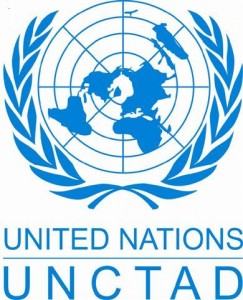Ninth Annual Columbia International Investment Conference: “Raising the Bar: Home Country Efforts to Regulate Foreign Investment for Sustainable Development”
Date: November 12-13, 2014 8:30am-5:30pm
Location: Faculty House, Columbia University, New York
The program is available here.
A Background Paper for the Conference is available here, and a Taxonomy of Home Country Measures is available here.
Much of the effort to regulate foreign investment for sustainable development focuses on the actions of host states, overlooking the role of home countries. In recent years, however, there has been growing dialogue over whether, in addition to supporting their firms in making foreign direct investments, home countries should also monitor or regulate the activities of companies operating abroad, for example, with regards to the disclosure of tax payments, or impacts on human rights, the environment, or development.
Legal experts have argued that home countries have extraterritorial obligations under international law, including with respect to regulating the activities of both publicly controlled as well as private companies. The increasing pressure on home countries to monitor or regulate the overseas activities of multinational companies also results from a sense of moral duty, the desire for greater coherency of governmental policies and actions, and perceptions of potential political or economic self-interest. Yet, while home countries have influence over outward investors, are willing to exercise extraterritorial power in certain contexts, and are often committed to sustainable development, their policies and actions are not always coherent.
This conference looked at home country measures that have been taken – unilaterally or multilaterally – to monitor or regulate foreign investment, why states have taken these measures, whether they have a duty to do so, what lessons can be learned from both successful and failed attempts, and what further efforts may be useful or necessary to regulate investment for sustainable development. Examining these issues is crucial in order to understand what future regulation of international economic activity will look like, who will be responsible for writing and enforcing the rules, and what that means for businesses, governments, citizens and other stakeholders.
Panelists included:
– Patrick Alley (Co-founder and Director, Global Witness
– Daniel Cerqueira (Senior Program Officer, Due Process of Law Foundation)
– Lesley Coldham (Group Head of Government, Public Affairs & Policy, Tullow Oil Plc)
– Mustaqeem De Gama (Director, Legal International Trade and Investment, Department of Trade and Industry, South Africa)
– Christina Hioureas (Associate, Chadbourne & Parke LLP)
– Marie-Chantal Kaninda (Chief Advisor, External Affairs Africa, Rio Tinto)
– Ambassador Lisa J. Kubiske (Deputy Assistant Secretary of State for International Finance & Development, U.S. Department of State)
– Margaret L. Kuhlow (Vice President, Office of Investment Policy, Overseas Private Investment Corporation)
– Yenga Mabolia (National Coordinator, Promines Project, Ministry of Mines, Democratic Republic of Congo)
– Julie McCarthy (Director, Fiscal Governance Programs, Open Society Foundations)
– Ariel Meyerstein (Vice President, Labor Affairs, Corporate Responsibility & Corporate Governance, United States Council for International Business)
– Lisa Misol (Senior Researcher, Business and Human Rights, Human Rights Watch)
– Roel Nieuwenkamp (Chair, OECD Working Party on Responsible Business Conduct)
– Zaw Oo (Executive Director, Centre for Economic and Social Development, Myanmar Resource Development Institute)
– Marcos Orellana (Director, Human Rights & Environment Program, Center for International Environmental Law)
– Mark Pearson (Director General, External Relations, Natural Resources Canada)
– Minister Francisco Rivadeneira (Minister of International Trade, Republic of Ecuador)
– Jeffrey Sachs (Director, The Earth Institute at Columbia University)
– Karl P. Sauvant (Resident Senior Fellow, Columbia Center on Sustainble Investment)
– Marcio Senne de Moraes (Director of External Affairs, Vale S.A.)
– Michael Shank (Associate Director, Legislative Affairs, Friends Committee on National Legislation)
– Benjamin Skinner (Co-founder and Senior Vice President, Tau Investment Management, LLC)
– M. Sornarajah (CJ Koh Professor of Law, National University of Singapore)
– Felipe Palacios Sureda (Investment Affairs Manager – Negotiator, Investment, Directorate General for Trade, European Commission)
– Werner Thut (Senior Policy Advisor, Swiss Agency for Development and Cooperation)
– Michael Tracton (Office Director, Office of Investment Affairs, U.S. Department of State)
– Mei (Lisa) Wang (Deputy Director, National Economic Research Institute, China)
– Jöerg Weber (Head, Investment Policies Branch, Investment and Enterprise Division, UNCTAD)
– James Zhan (Director, Investment and Enterprise Division, UNCTAD)
The program is available here.
With support from:


![]()

![]()
Media sponsor:




